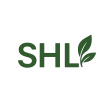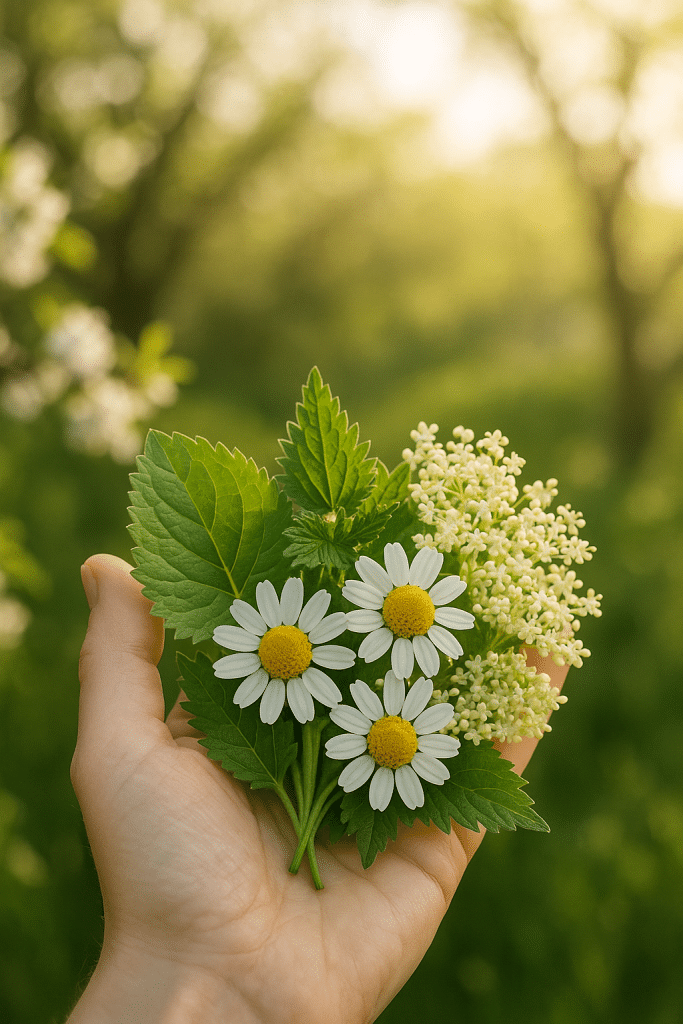Seasonal allergies can turn what should be a refreshing walk in the park into an overwhelming battle with sneezing, congestion, and itchy eyes. If you’re like me, always on the lookout for natural ways to bring balance and relief without the side effects common in conventional medicines, then you’re in the right place. Herbal remedies for seasonal allergies offer promising, time-tested solutions sourced straight from nature, supporting your wellness journey with gentle yet effective options.
In this article, I’ll dive deep into the causes of seasonal allergies, unpack the immune reactions behind the symptoms, and walk you through five powerful herbal remedies that can help you fight allergy symptoms naturally. You’ll also discover useful tips on how to use these herbs safely and effectively, supported by scientific insights and real-world experiences. Whether you’re battling mild sniffles or persistent sinus issues, these herbal allies can help restore peace to your body and mind during allergy season.
Understanding Seasonal Allergies: Causes and Immune Response
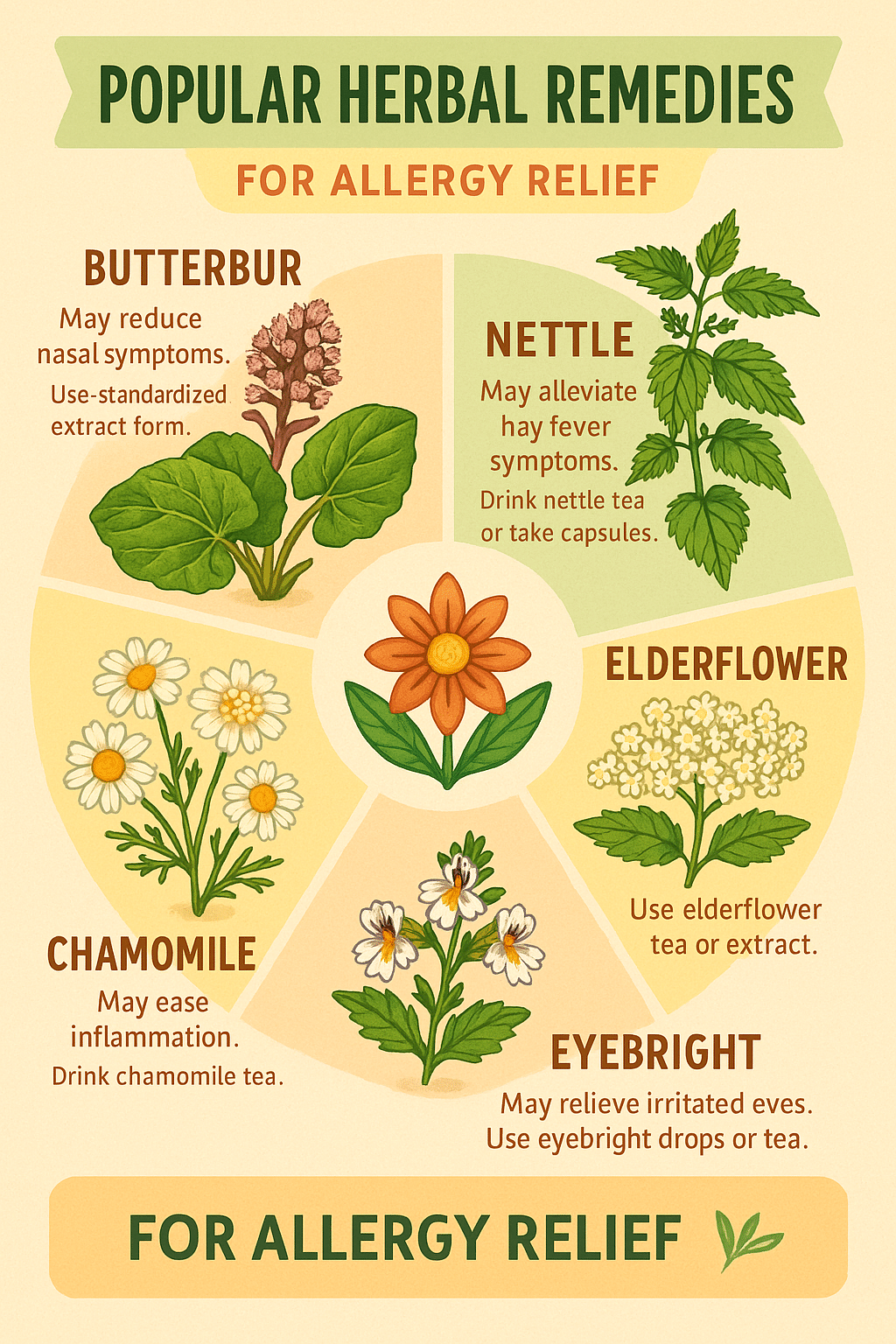
Seasonal allergies, also known as allergic rhinitis or hay fever, occur when your immune system reacts to pollen or other airborne allergens as though they were harmful invaders. But how exactly does this reaction take place?
How Allergies Trigger Immune and Inflammatory Reactions
When pollen from trees, grass, or weeds enters your nose, your immune system often mistakes it for a dangerous substance. This triggers an immune response to defend your body by producing antibodies called Immunoglobulin E (IgE). These antibodies attach to immune cells called mast cells found in mucous membranes, especially in your nose and eyes. Upon re-exposure to allergens, these mast cells release histamine and other inflammatory chemicals.
This flood of chemicals causes your blood vessels to dilate, nasal passages to swell, and mucus production to increase—leading to classic allergy symptoms like congestion, sneezing, watery eyes, and itching. It’s a protective overreaction but one that can disrupt daily life and sap your energy.
Role of Histamine and Mast Cell Activation in Allergy Symptoms
Histamine is the main culprit behind many allergy signs and symptoms. It binds to histamine receptors in your nose, eyes, skin, and throat, increasing blood flow and stimulating nerve endings—hence the sneezing and itching. Mast cells act as alarm systems, releasing histamine and other inflammatory mediators to signal to your body that there might be an invader.
Interestingly, stabilizing mast cells so they don’t flood your system with histamine, or blocking histamine’s effects naturally, can significantly alleviate allergy symptoms. This is where some herbs come into play, providing natural antihistamine and anti-inflammatory support without hard-hitting drug side effects.
Natural Herbal Approaches: Why Choose Herbs for Allergy Relief
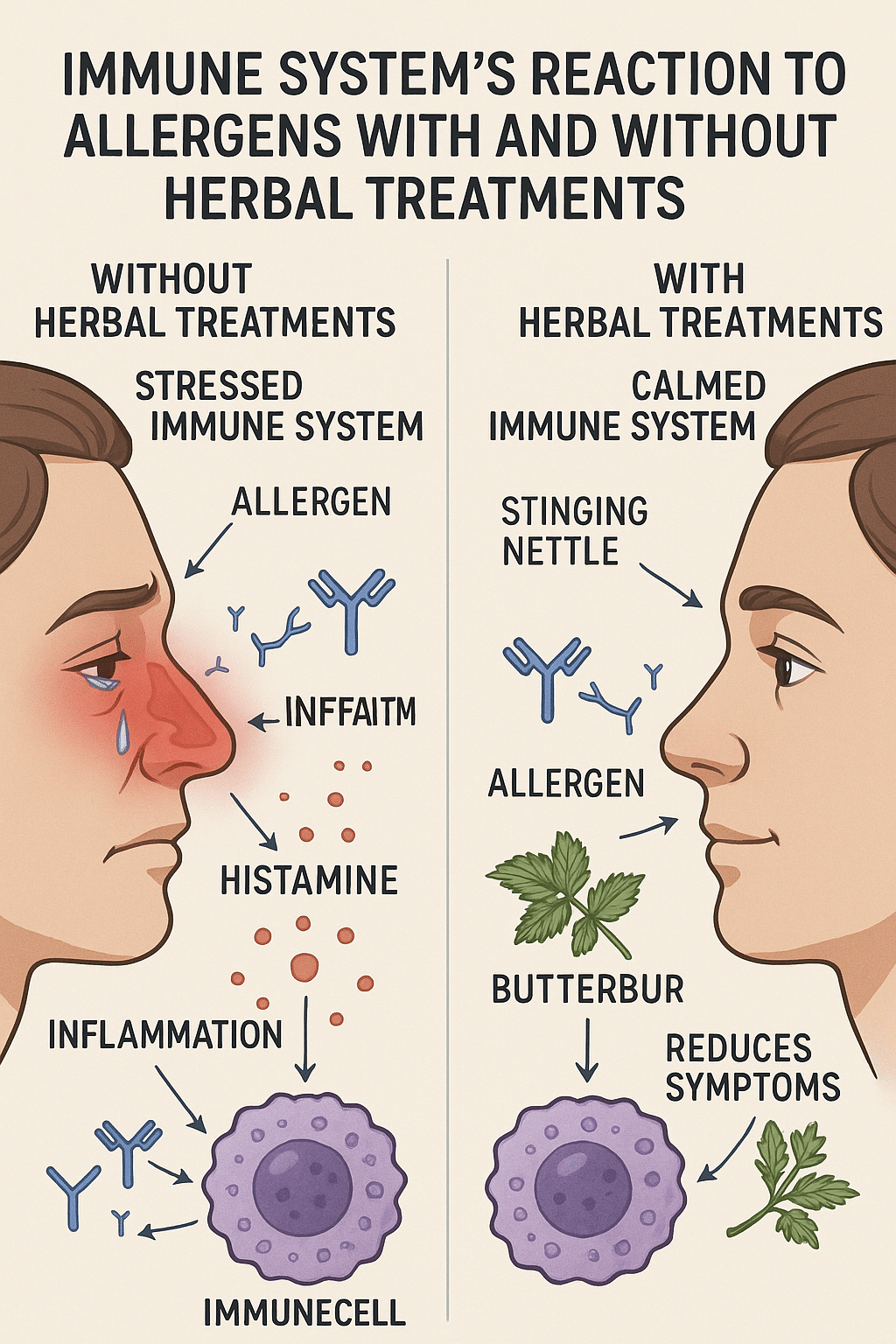
There’s a growing preference for herbal remedies among wellness-focused individuals seeking stress relief and balanced immune health. Why? Simply because herbs work in harmony with your body rather than overriding its natural processes.
Benefits of Herbal Remedies in Supporting Immune Balance and Reducing Stress
Herbal remedies offer a multifaceted approach to seasonal allergies: they not only target histamine and inflammation but also support your overall immune system and reduce stress, which itself can worsen allergy symptoms.
For example, certain adaptogenic herbs can help regulate the body’s stress response and reduce the chronic inflammation that often accompanies allergies. Reducing stress strengthens your body’s resilience, preventing overreaction to harmless allergens.
Overview of Natural Antihistamines and Anti-Inflammatory Properties in Herbs
Many herbs contain bioactive compounds—like flavonoids quercetin, rutin, and hesperidin—that act as natural antihistamines by stabilizing mast cells or blocking histamine receptors. Others possess robust anti-inflammatory effects that soothe swollen nasal tissues and reduce mucus production.
Compared to synthetic drugs, these natural compounds tend to come with fewer side effects and provide added benefits such as antioxidant support and immune modulation. This makes them excellent adjunct therapies during allergy season—especially for those who prefer holistic wellness pathways.
Stinging Nettle: Nature’s Potent Antihistamine
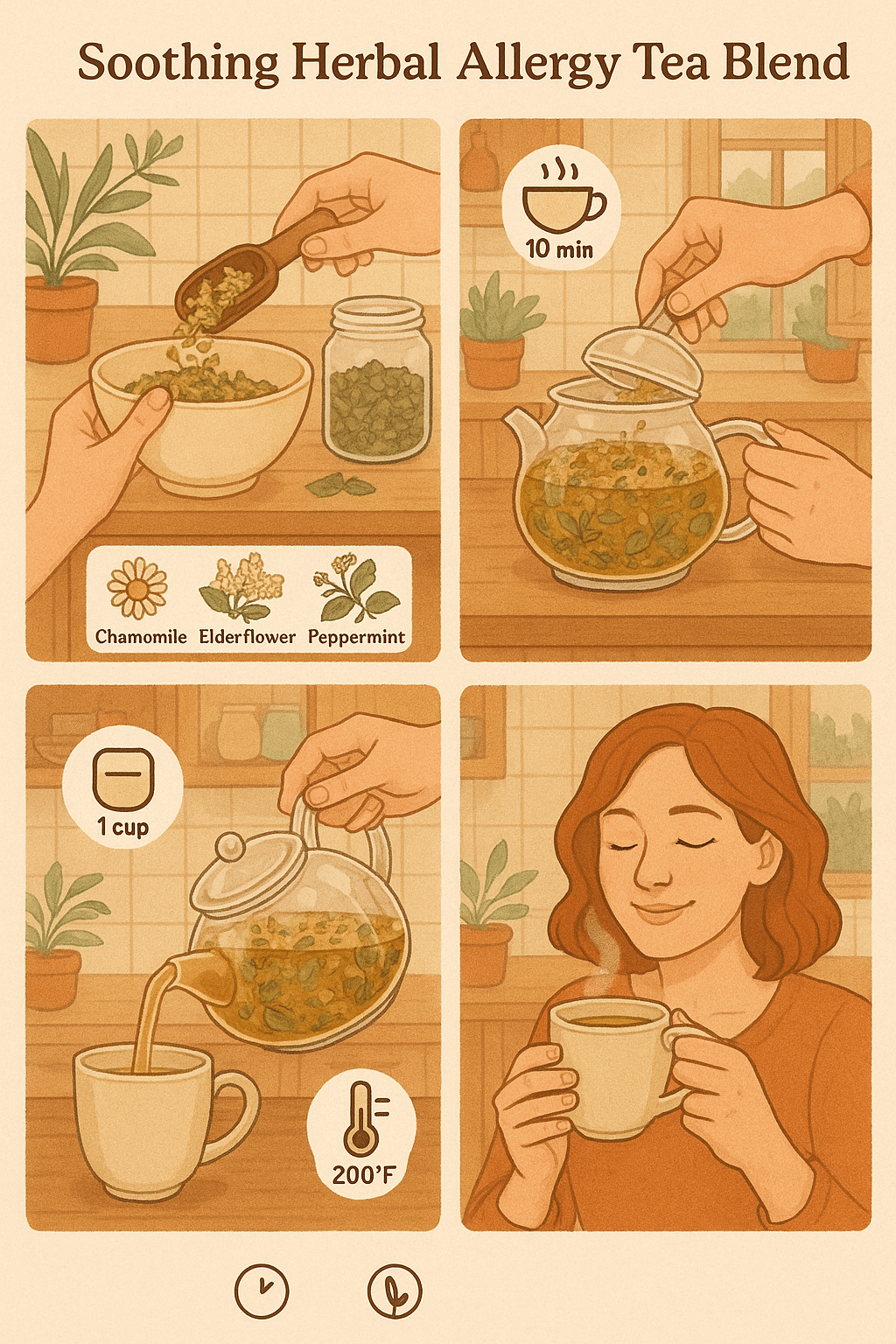
If I had to pick one herb that stands out for managing seasonal allergy symptoms naturally, it would be Stinging Nettle (Urtica dioica). This humble plant packs a powerful punch against histamine-induced inflammation and congestion.
Mechanism of Action: Mast Cell Stabilization and Histamine Blocking
Stinging Nettle works primarily by stabilizing mast cells, preventing them from releasing excessive histamine when exposed to allergens. It also blocks histamine receptors directly, effectively reducing allergy symptoms like sneezing, nasal itchiness, and watery eyes.
Scientific studies have supported nettle’s effectiveness. For instance, a clinical trial published in the journal Planta Medica showed that freeze-dried nettle significantly reduced seasonal allergy symptoms comparable to some over-the-counter antihistamines but without the sedative side effect.
How to Use Stinging Nettle for Allergies – Capsules and Dosage
For allergy relief, freeze-dried nettle capsules are a convenient way to get a consistent dose of active compounds. The typical dosage used in studies ranges from 300 to 600 mg, taken two to three times daily, starting a few weeks before allergy season for best results.
Product Spotlight: Nature’s Way Stinging Nettle Freeze-Dried Capsules deliver 870 mg per serving and are widely available through retailers like Emerson Ecologics, Nutriment Boutique, and The Natural. These capsules provide a reliable, high-quality source of nettle leaf and are easy to incorporate into your daily routine.
Holy Basil (Tulsi): The Adaptogenic Herb for Immune Modulation and Stress Relief
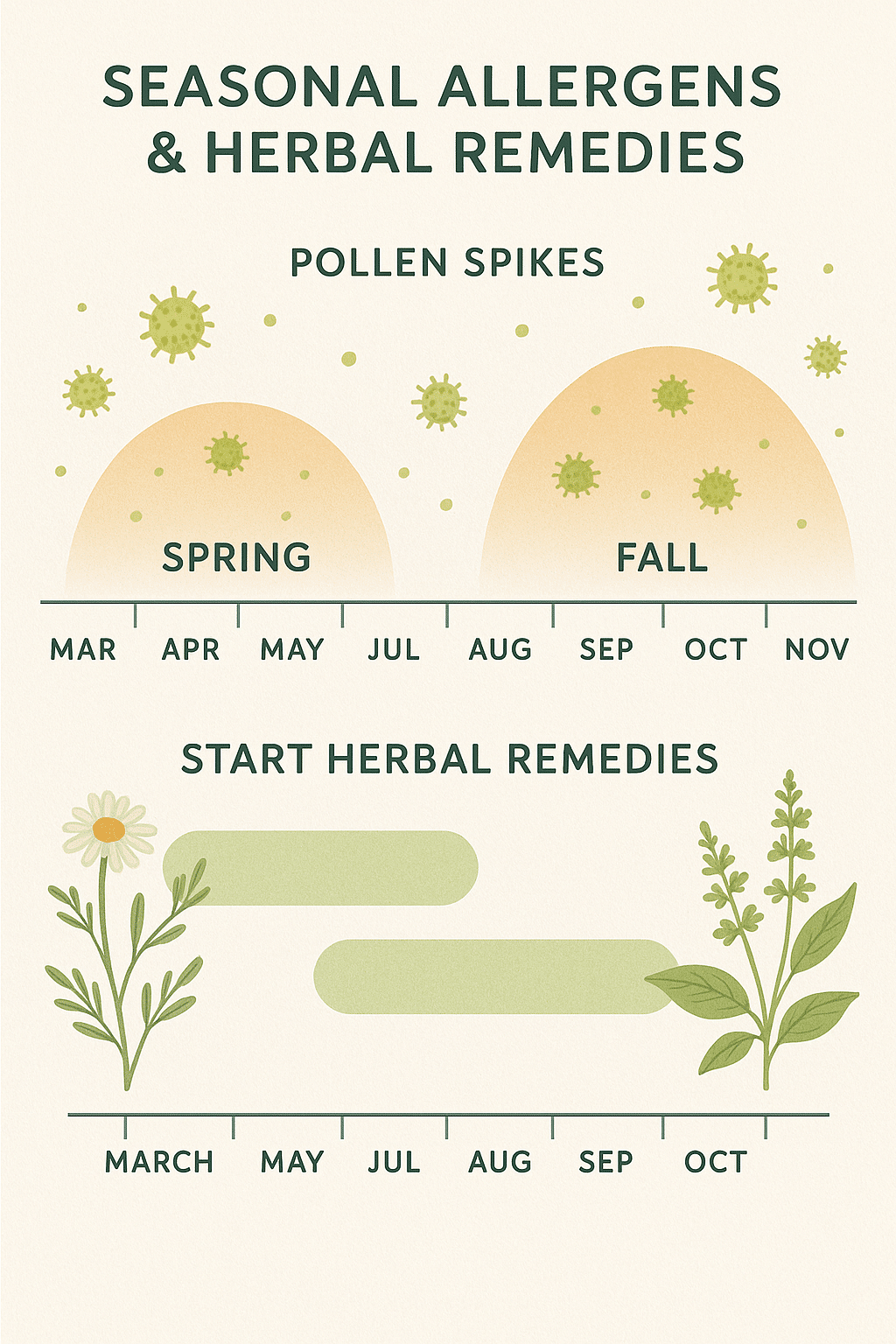
Next up is Holy Basil, also known as Tulsi, a revered herb in Ayurvedic medicine famed for its adaptogenic and anti-inflammatory properties.
Holy Basil’s Role in COX-2 Enzyme Inhibition and Antioxidant Support
Holy Basil helps modulate immune overactivation by inhibiting cyclooxygenase-2 (COX-2), an enzyme that promotes inflammation. This helps reduce swelling in nasal passages caused by seasonal allergies. What’s more, it’s rich in antioxidants that combat free radicals, reducing oxidative stress associated with chronic allergic inflammation.
Its adaptogenic qualities also support your body’s stress response, which is critical because stress can exacerbate allergic reactions. By promoting calm and balance, Holy Basil can indirectly ease allergy symptoms.
Incorporating Himalaya Organic Holy Basil (Tulsi) Capsules in Your Wellness Routine
Himalaya’s Organic Holy Basil Capsules provide a standardized dose ensuring consistent potency and purity. Each capsule contains 300 mg of tulsi leaf extract, organically grown for safety and efficacy.
You can purchase these capsules directly via Himalaya USA or through major retailers like Target, Walmart, and Amazon.
Taking Holy Basil capsules daily during allergy season can be a simple yet effective strategy to maintain immune balance and reduce inflammatory flare-ups.
Local Raw Honey: Building Natural Tolerance to Pollen Allergens

You may have heard the saying, “Eat local honey to cure allergies.” Although it’s not a cure-all, consuming local raw honey regularly can help your body build natural tolerance to local pollen allergens.
Scientific Insights into Local Honey’s Benefits for Allergy Relief
Raw honey contains small amounts of local pollen mixed in during production that can act like a natural allergen immunotherapy. When consumed regularly, it may help desensitize your immune system and reduce allergic reactions over time.
A study published in the Annals of Allergy, Asthma & Immunology found that local honey consumption led to a significant reduction in seasonal allergy symptoms in participants. Keep in mind, for this to work, honey must be raw, unfiltered, and sourced locally to ensure pollen presence.
How to Select and Use Local Raw Honey Effectively
Choose 100% raw, unpasteurized honey from local apiaries or reputable brands such as Y.S. Eco Bee Farms Local Raw Honey. Their honey is unfiltered, preserving enzymes and antioxidants that help boost immune health.
Start by taking one teaspoon daily, preferably in the morning or mixed in herbal tea. Avoid giving honey to children under one year due to botulism risk.
Nasal Irrigation with Neti Pot: Clearing Allergens and Supporting Respiratory Health
Nasal irrigation is a surprisingly powerful yet simple practice to flush allergens out of your nasal passages, complementing herbal approaches wonderfully.
The Science Behind Nasal Irrigation in Allergy Symptom Relief
Using a saline rinse with a Neti Pot cleanses your nasal passages by removing pollen, dust, and mucus, reducing irritation and congestion. Research has shown nasal irrigation helps alleviate nasal symptoms, lowers medication needs, and improves quality of life during allergy season.
Safe and Effective Use of Neti Pots During Allergy Season
To safely use a Neti Pot:
- Use distilled, sterile, or previously boiled water cooled to lukewarm.
- Mix saline packets provided with the Neti Pot or prepare a homemade saline solution (1 teaspoon non-iodized salt + 1/2 teaspoon baking soda in 2 cups water).
- Tilt your head sideways over the sink, insert the spout into the upper nostril, and pour liquid slowly to flow out the opposite nostril.
- Repeat on the other side.
Do this once or twice daily during allergy flare-ups, avoiding if you have nasal infections or blockages.
Recommended Kits
For beginners, kits such as the Walgreens Neti Pot Kit, which includes saline packets and a soft tip pot, are excellent choices. Other alternatives include Rite Aid’s Neti Pot or NeilMed’s Sinus Rinse Kit.
Butterbur Extract: Herbal Anti-Inflammatory for Reducing Allergy Congestion
Butterbur (Petasites hybridus) is less well-known but packs a formidable punch as an anti-inflammatory herb.
How Butterbur Bioactive Compounds Reduce Nasal Inflammation
Butterbur contains petasin and isopetasin, compounds that inhibit leukotrienes and histamine release, promoting reduced swelling and nasal congestion. Clinical trials have found butterbur to be as effective as some antihistamines in controlling seasonal allergies but without causing drowsiness.
Usage Guidelines and Dosage Recommendations
Standardized butterbur extract is taken in doses around 50 to 75 mg twice daily during allergy season. It’s important to select a PA (pyrrolizidine alkaloids)-free product to avoid liver toxicity.
Product Availability: Swanson Butterbur Extract Capsules offer a trusted PA-free option with convenient capsule dosages.
Supporting Allergy Relief with Complementary Herbal and Lifestyle Strategies
Herbs alone work best when paired with lifestyle habits and complementary remedies for maximal relief.
Herbal Teas and Essential Oils to Ease Symptoms
Warm herbal teas made from peppermint, chamomile, or eucalyptus can soothe irritated throats, reduce mucus, and ease nasal congestion. Adding a few drops of essential oils (like peppermint or eucalyptus) to a diffuser can promote easier breathing and respiratory comfort.
Probiotics and Gut Health’s Impact on Immune Response
Emerging research links gut health with allergy severity. Probiotic strains such as Bifidobacterium lactis and Enterococcus faecium help regulate the immune system, potentially reducing allergic sensitivity. Consuming fermented foods or high-quality probiotic supplements can complement herbal therapies.
Environmental Factors: Air Purifiers and Humidifiers
Maintaining clean indoor air with HEPA air purifiers reduces allergen exposure. Also, using humidifiers prevents dryness that can worsen nasal inflammation. These simple environmental controls enhance the effectiveness of herbal and natural remedies.
Unique Insight: Combining Herbal Remedies with Mindful Stress Management for Balanced Immunity
Many allergy sufferers don’t realize stress plays a critical role in symptom severity.
How Chronic Stress Amplifies Allergy Symptoms
Stress hormones such as cortisol can dysregulate immune function, making allergic reactions more intense and prolonged. Chronic stress disrupts your body’s delicate balance, exacerbating inflammation and mast cell sensitivity.
Integrative Practices: Meditation, Adaptogens, and Herbal Supplements
Incorporating mindfulness meditation, yoga, or breathing exercises reduces stress hormones and supports immune balance. Adaptogenic herbs like Holy Basil synergize by buffering stress responses. Adding herbal supplements tailored for both immunity and relaxation forms a comprehensive defense.
Safety Considerations and Consulting Healthcare Professionals
While herbal remedies are generally safe, it’s crucial to be informed.
Potential Interactions and Contraindications of Herbal Remedies
Some herbs may interact with medications such as blood thinners or immunosuppressants. Butterbur must be PA-free to avoid liver toxicity. Those who are pregnant, breastfeeding, or have chronic health conditions should consult healthcare providers before beginning any herbal supplementation.
Importance of Quality and Sourcing in Herbal Supplements
Purchase from reputable brands with standardized extracts and third-party testing to ensure purity and potency. For example, Nature’s Way, Himalaya, and Swanson have established quality standards, giving you confidence in what you take.
Conclusion: Embracing Herbal Remedies for Holistic Seasonal Allergy Relief
Seasonal allergies don’t have to define your spring or fall, nor do you have to resign yourself to side effects from conventional medications. Incorporating effective herbal remedies like Stinging Nettle, Holy Basil, local raw honey, nasal irrigation, and Butterbur extract can offer a natural, balanced approach to allergy relief—one that respects your body and supports your wellness holistically.
By blending these herbal tools with mindful stress management, probiotics, and environmental strategies, you build resilience that not only eases symptoms but nurtures immune harmony. Remember, consistency and quality matter, so select trusted products and consult healthcare professionals as needed.
If you’re ready to reclaim comfort during allergy season with nature’s gifts, why not try integrating one or more of these proven herbal allies today? Your path to balanced, stress-free allergy relief is just a capsule or a cup of tea away.
FAQs About Herbal Remedies for Seasonal Allergies
Q1: Are herbal remedies for seasonal allergies safe for children?
A1: Many herbal remedies such as nettle and honey are generally safe for children over 1 year, but dosage and specific herbs should be chosen carefully. Always consult a pediatrician before starting herbal treatments for children.
Q2: How long does it take for herbal remedies like stinging nettle to work on allergy symptoms?
A2: Herbal remedies typically require consistent use over several weeks before noticeable relief occurs. Starting before the peak allergy season can improve effectiveness.
Q3: Can I combine multiple herbal remedies for better allergy relief?
A3: Yes, combining herbs like Holy Basil with Butterbur and using nasal irrigation is common. However, ensure there are no contraindications or overlapping side effects, and consult a healthcare practitioner if unsure.
Q4: What is the role of probiotics in managing seasonal allergies?
A4: Probiotics support gut health, which influences immune balance. Certain probiotic strains may reduce the severity of allergic responses by modulating immune system activity.
Q5: How do I choose quality herbal supplements for allergy relief?
A5: Look for reputable brands that provide standardized extracts, third-party testing, and clear ingredient labeling, such as Nature’s Way, Himalaya, and Swanson, all trustworthy sources for allergy-supportive herbs.
Quick Takeaways / Key Points
- Seasonal allergies result from immune system overreaction causing histamine release and inflammation.
- Herbal remedies can stabilize mast cells, act as natural antihistamines, and reduce inflammation without harsh side effects.
- Stinging Nettle is a powerful natural antihistamine and mast cell stabilizer to reduce sneezing and congestion.
- Holy Basil (Tulsi) supports immune modulation and combats stress, reducing allergy flare-ups.
- Local raw honey may desensitize the immune system to local pollen, promoting natural tolerance.
- Nasal irrigation with a Neti Pot safely clears allergens, relieving congestion and improving breathing.
- Butterbur extract offers anti-inflammatory benefits comparable to antihistamines but without drowsiness.
- Complementary lifestyle practices, including probiotics, herbal teas, essential oils, and air quality management, enhance allergy relief.
- Managing stress with mindfulness and adaptogenic herbs supports balanced immune responses.
- Always choose high-quality supplements and consult healthcare professionals about herb use and possible interactions.
I hope this comprehensive guide helps you approach seasonal allergies with confidence and a natural toolkit grounded in science and tradition. Here’s to breathing easy and embracing the seasons joyfully!
